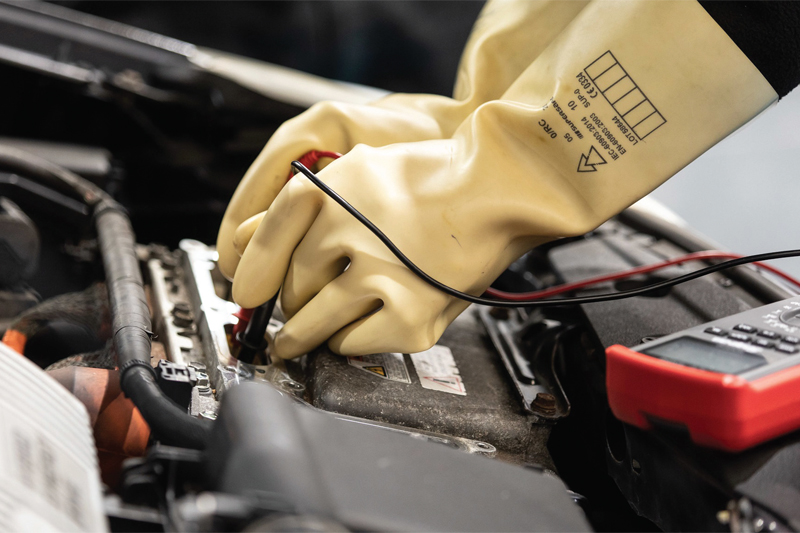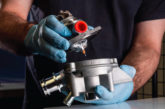
Following the news that the ban on petrol and diesel car sales has been brought forward to 2030, the automotive industry is gearing up for its biggest challenge to date – the need to retrain technicians to service the electric/hybrid vehicles which are set to deluge the sector. Simon King, Managing Director of Autotech Training, explains.
On the need to make training a priority, the Institute of the Motor Industry (IMI) penned an open letter to the industry that brought several worrying statistics to light, one of the most prevalent being that COVID-19 may have derailed efforts to train the critical mass of vehicle technicians needed to service the electric/hybrid car parc.
The number of certificates for working on electric vehicles issued in 2020 fell by 85% compared to the previous year. According to the IMI, if we had carried on with 2019 levels of certification, we may just have reached the minimum number of vehicle technicians needed by the time the ICE ban comes into effect in 2030.
We are now, unfortunately, way off that mark and there is a lot of ground that needs to be covered.
Pressing the reset button
For years, the rapid acceleration of the automotive industry has largely left the skill set of the current workforce behind. But never have we faced such a vital need to press the skills reset button.
While instilling confidence within the consumer and generating new revenue streams by having a workforce that can service electric/hybrid vehicles is important, the need to safeguard the safety of employees is crucial. And let’s face it, if vehicle technicians are not adequately trained, it will only be a question of time before somebody without the right knowledge puts a spanner in a high voltage area. Consequently, garage owners could find themselves liable.
As a company, we are committed to driving up skills within the industry, from investing in our own vehicle technician and MOT tester contractor network, to creating dedicated training and academy divisions.
We specifically created Autotech Training to help upskill the industry, and this division has been delivering high quality MOT and technical training courses since 2016.
However, at the end of last year, in a bid to support the electric/hybrid vehicle transition within the aftermarket, we made our most substantial training investment to date.
The pinnacle of this investment was the opening of our dedicated EV training suite within our new headquarters.
Certified to deliver IMI Levels 1 to 4 Electric/Hybrid vehicle courses, the EV training suite also supports our on-site EV training offering, which can be delivered on the premises of any garage or business looking to equip their employees with the relevant knowledge, while keeping their time away from business to a minimum.
We also pledged that every contractor working within our network of temporary vehicle technicians and MOT testers will be trained to a minimum Level 2 Hybrid & Electric Vehicle IMI standard by the end of this year – and we’re well on the way to achieving this goal.
Contractor case study: Luke Hodgkiss
Luke Hodgkiss has worked as a vehicle technician within the company’s contractor network for over two years.
Here is what Luke had to say about the training on offer: “Autotech Recruit gifted me a voucher to the sum of the IMI Level 3 Hybrid and Electric Vehicle training course. Prior to attending the course, I carried out the online training for hybrids, plug-in hybrid vehicles (PHEV), and electric vehicles (EV). While I was able to do this in my own time, this course also gave me the essentials right through to the physics of EVs.
“The EV training suite is the size of a small class room which easily fits a vehicle, tools and diagnostic equipment, with space to work freely around the car. The Level 2 course is completed first, covering the fundamentals of hybrids and EVs. It breaks down each section into makes, models and types of hybrid, PHEV, and EV, as well as covering the systems they use, whilst incorporating the seven-step safety procedures that enable technicians to carry out the work safely. The teaching is split between classwork, and on the EV itself to apply the theoretical knowledge.
“The Level 3 course focuses on in-depth diagnostics of the systems within an EV. For instance, most people won’t know that there are two different electric circuits inside an EV: a 12V and a high-voltage circuit. Which means understanding the volts and amps that we test and how to diagnose them safely is key to moving from Level 2 to Level 3. The course showed me how to read the information from the vehicle sensors and ECU to confidently ensure that the vehicle has been repaired correctly first time. Level 3 also includes how to safely isolate the high-voltage system from the rest of the vehicle, and correctly re-instate the high-voltage system and check its functioning using the diagnostic equipment. It also covers, in detail, how electrical circuits operate, and how the high-voltage and low-voltage circuits interact with each other.
“Having the chance to do a course as in-depth as this one has been very rewarding, not only giving me an industry standard qualification, but also adding another string to my bow for future contracts with Autotech Recruit.”









